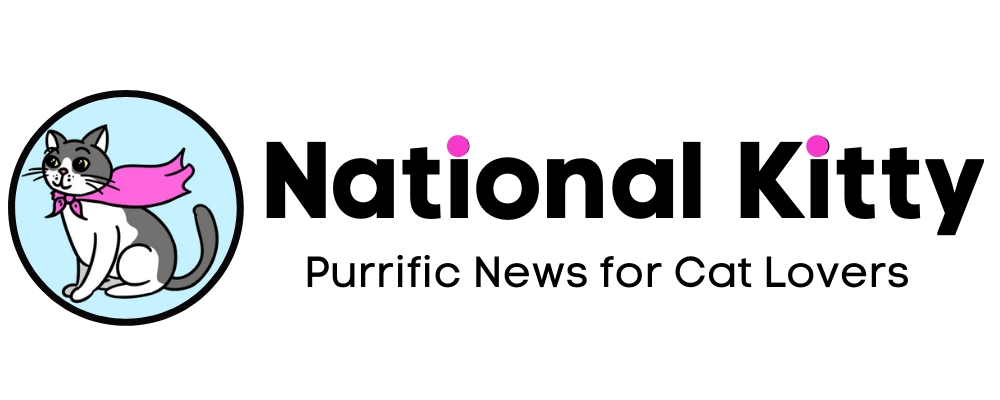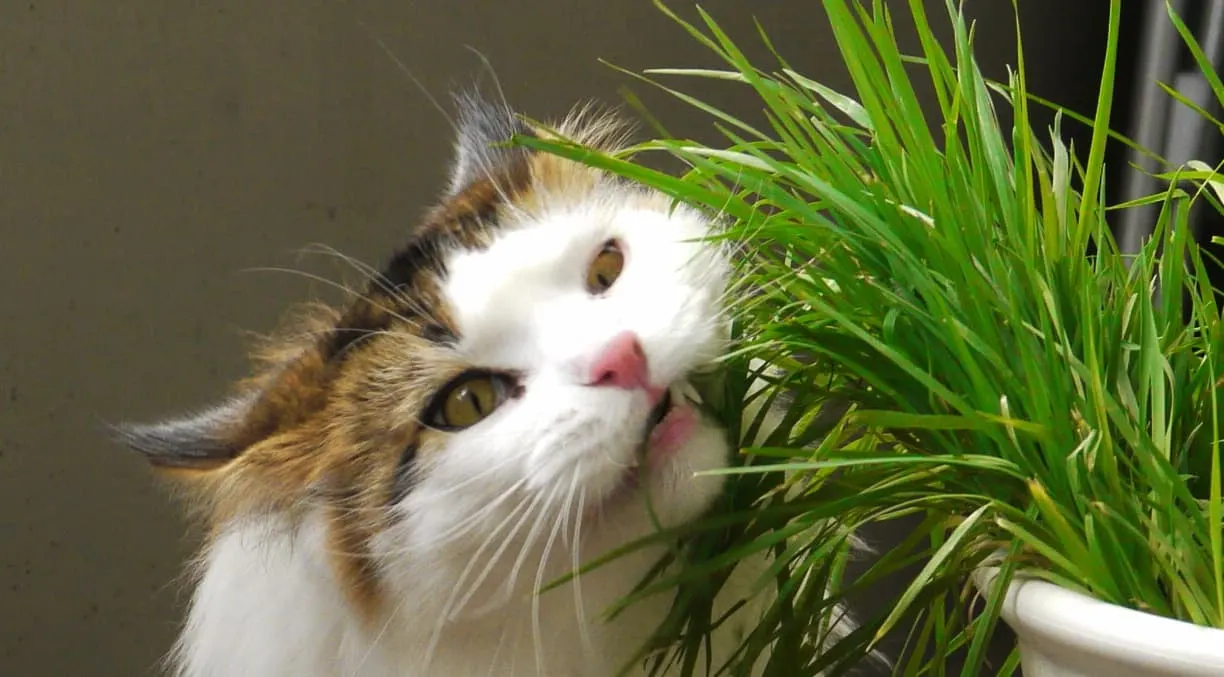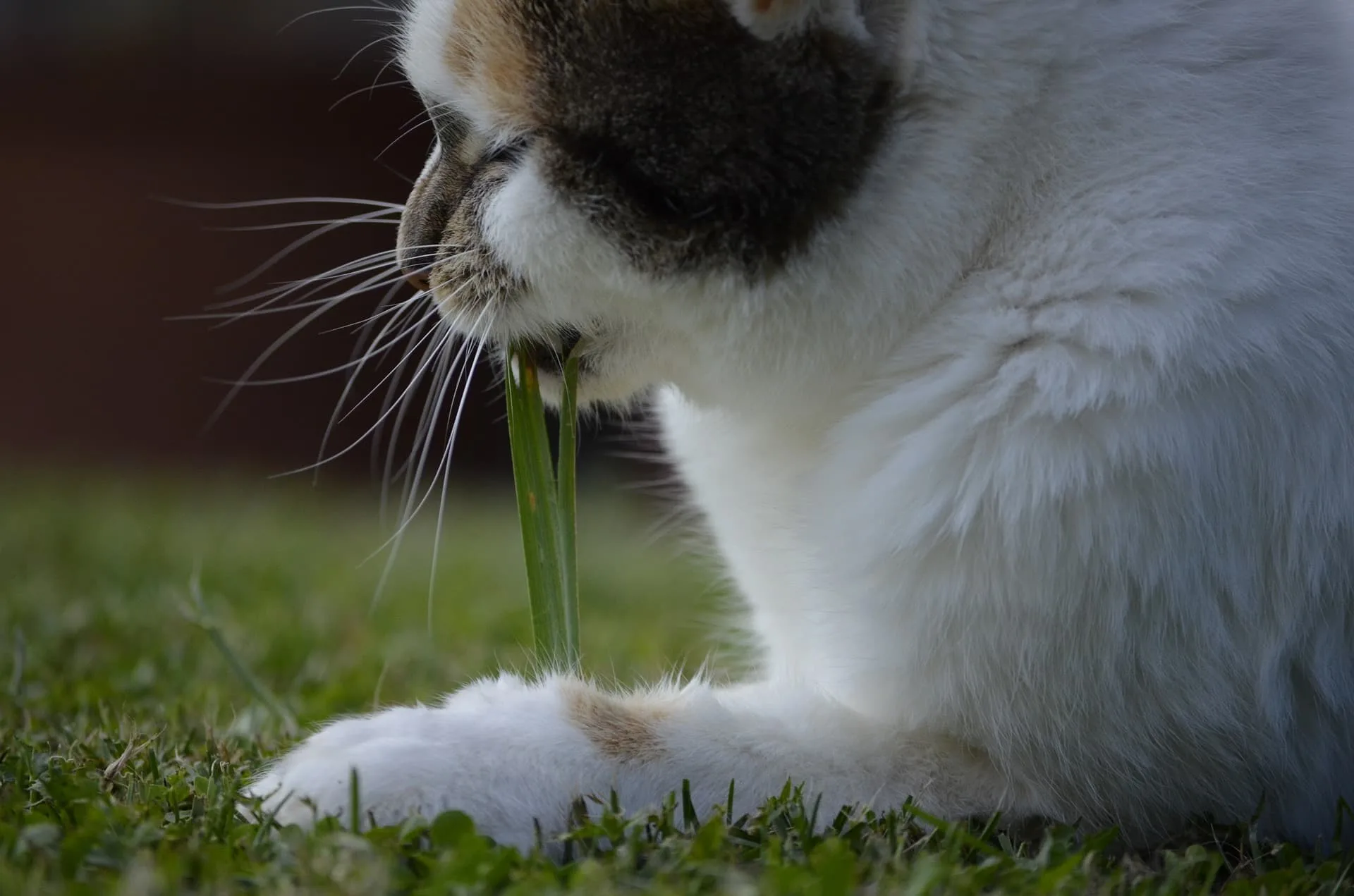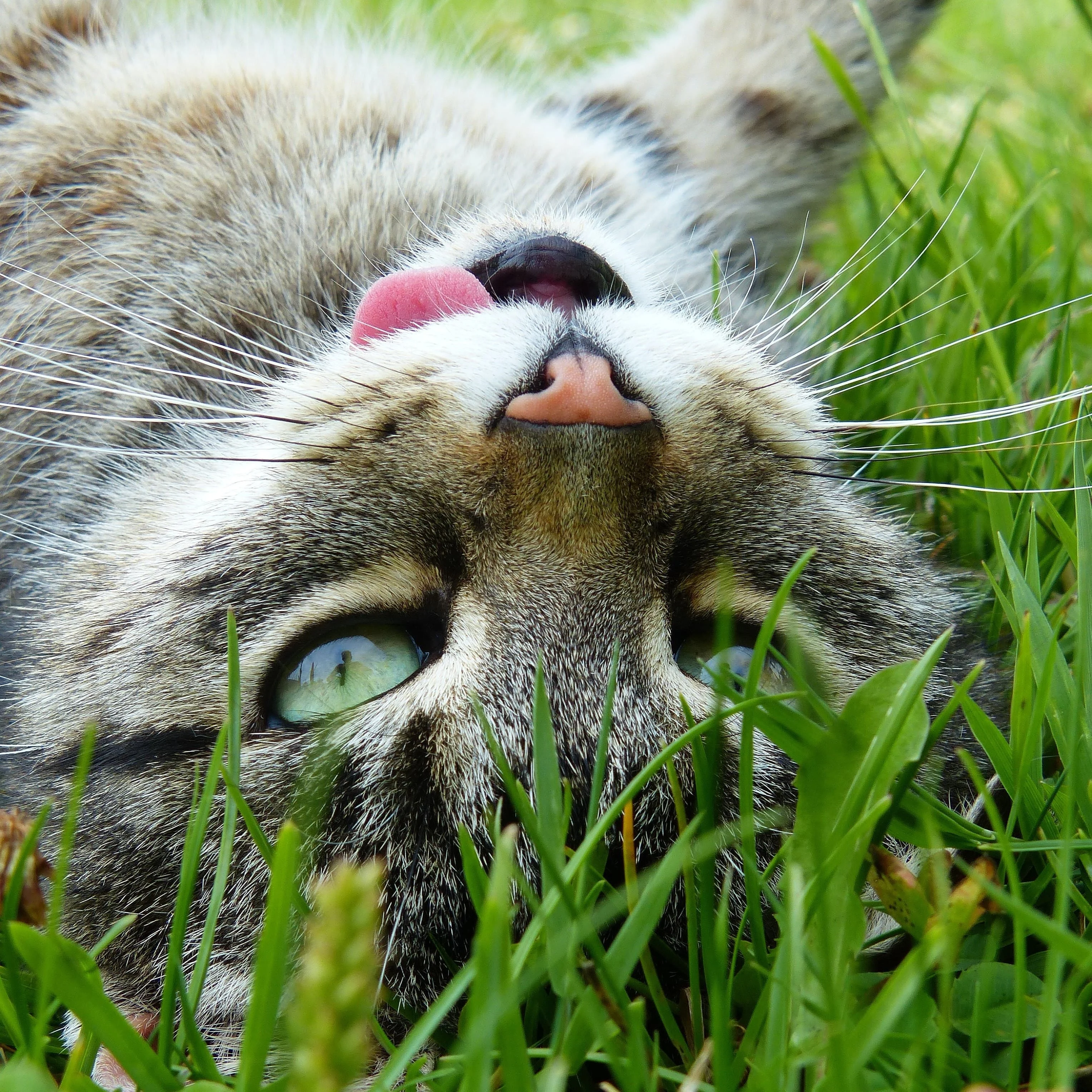Cats have a strange relationship with grass. They seem so determined to devour it only to throw it up hours later.
Cats regurgitate grass because because they do not have the enzymes required to digest it. So why would cats want to eat grass?
As often happens with cat behavior, scientists can’t explain this behavior for certain, but they have a few ideas about why cats like to eat grass and if it’s actually harmful for them.
Grass contains special nutrients
One of the reasons that cats may like eating grass is because of some special nutrients found in grass. Grass contains folic acid, which is a vitamin that is also present in a new mother’s milk.
Folic acid is important to young cats because it helps them grow and develop. In adult cats, folic acid helps with the production of hemoglobin, which is used to carry oxygen to red blood cells.
A lack of hemoglobin can cause anemia, which is something you’ve probably heard of because it can happen to humans as well.
Essentially, anemia is a blood disorder that can cause fatigue and other illness for both cats and humans.
SURVEY: Do You Consider Cats Family?
Your opinion matters!
Throwing up might be beneficial at times
It’s also possible that the grass acts as natural emetic (vomit inducing substance) for your cat.
A cat’s body doesn’t have the necessary enzymes to digest grass, so they are forced to regurgitate the grass shortly after eating it.
But this might come in handy! Cats in the wild eat birds, vermon, and bugs that with particles like small bones and feathers that cats don’t need in their system.
Throwing up these unnecessary and potentially dangerous parts by eating grass might be deliberate. Over time, cats might have become wired to do this.
Eating grass could be a cat’s way of cleaning out their system by forcing anything out that shouldn’t be there.
Hairball elimination
It could also be a way of eliminating hairballs that form when cats groom. It’s typically easier for a cat to eliminate a hairball through their mouth as opposed to the opposite end.
But if a hairball makes it into the cat’s digestive system, the may eat grass for its fiber content.
The fiber should improve their ability to eliminate the hairball from the rear.
Is grass safe for your cat to eat?
As long as your cat is not eating too much grass, then eating grass is safe. Don’t be too alarmed if your cat starts vomiting after eating grass – this is natural.
However, monitor this behavior and make sure there is not another underlying cause to your cat’s vomiting.
Safe ways for your cat to play outside
Be sure not to let your cat near grass that has been treated with pesticides. This could result in your becoming very sick.
If you are an outdoor cat owner, you need to be extra cautious of this because you don’t have as much control over where your cat wanders to.
The best way to prevent your cat from being poisoned by pesticide treated grass is to keep them indoors and only let them outside for monitored activity.
Some cat owners have even built their cats a “catio” so they can enjoy the outdoors safely.
Safe alternatives to grass
If your cat really enjoys nibbling on some grass but you’re worried about letting them outside, you can grow your own little grass plants for your cat.
These little plants are called feline herbs or greens, which are usually either wheat grass or oat grass (sometimes rye grass).
You can buy feline herbs as a potted plant with grass seedlings or you can buy the seeds themselves. Below are some of my recommendations on cat grass.
The best part about growing your own grass is that your cat usually prefers these feline greens to regular grass and you know that that they weren’t treated with pesticides or any harmful substances.
Whether it’s grass or another houseplant, make sure all plants in your home are safe for your cat.
Cats love to chew on plants and many houseplants ARE toxic to cats.
RELATED: 8 Surprisingly Common Plants That Are Poisonous To Cats
**WARNING** If you notice your cat eating grass every day or they’re eating large quantities of it, it might be time to call the vet.
It’s possible that your cat has some deficiency in their system that’s causing them to eat larger amounts of grass than they should.
A little is okay, but a lot could be a sign of something else.
Conclusion
So, there you have it. Once again, our feline friends amaze us and stump science at the same time.
Is it possible that our cats are eating grass as some type of health food/emetic? Is this the same thing as a juice cleanse for humans?
Whatever the reason, a little grass nibbling is okay in moderation, as long as you’re okay with doing some cleanup from time to time.
If you can create a little kitty garden inside your home, you can satisfy your cat’s desire to chew grass.
SUMMARY: Why do cats eat grass?
- Grass contains special nutrients.
- Cats use grass as an emetic to vomit inedible food particles from previously consumed prey.
- Cats use grass to induce vomiting up their hairballs.
QUESTION: Have you ever tried growing your own cat grass? What was your experience?







Eugene
Friday 20th of September 2019
it wont let me send why cats eat grass
Robin L witham
Wednesday 18th of September 2019
I'm growing it now my cats don't seem to care about it and it's beautiful . but they do love the cat nip I grow outside of coarse it's only given as special treats and we give it to there friends every Christmas the love it so much more then the store bought stuff
Carol Rosas
Monday 16th of September 2019
Every few days I get a handful of grass for each of my two cats. When I yell out (grass) they come running has if I had a new toy. I never spray my grass so I know it's safe
Jeri Taylor
Friday 19th of July 2019
My cats love the grass made for cats. I grow it in pots from seed. It helps my Ragdoll cat alot with the fur balls he gets from grooming. I highly recommend it for indoor cats.